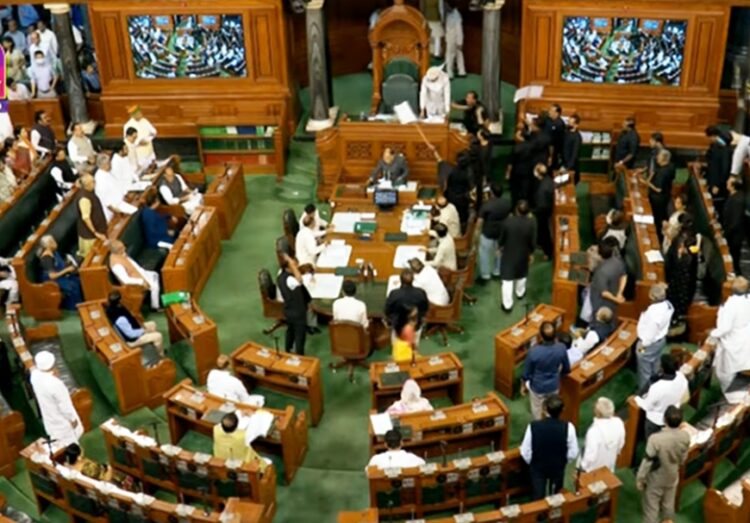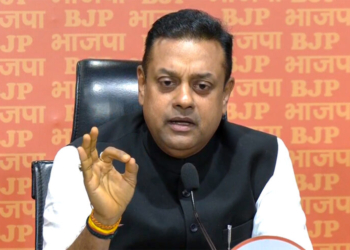New Delhi: The Coastal Aquaculture Authority (Amendment) Bill 2023, which aims to amend the existing legislation meant for regulating activities related to coastal aquaculture, was introduced in the Lok Sabha on Wednesday by government amid noisy protests by opposition, which sought a joint parliamentary committee probe in the Adani-Hindenburg issue.
The Lok Sabha was adjourned till Thursday (April 6), as the Congress-led opposition kept up with their protests, shouting slogans and displaying placards while standing in the well of the House.
As soon as the House reconvened at 2 p.m., the protests by opposition parties led by Congress, DMK and Left started.
Rama Devi, who was in the Chair, allowed the laying of papers and introduction of the Coastal Aquaculture Authority (Amendment) Bill 2023.
As her requests for maintaining order went unheeded, she adjourned the House till Thursday.
The Coastal Aquaculture Authority Act, 2005 (CAA Act, 2005) was enacted by Parliament to establish a coastal aquaculture authority for regulating the activities connected with coastal aquaculture in the coastal areas of the country.
The Coastal Aquaculture Authority (Amendment) Bill 2023, intends to expand the scope of the original Act beyond coastal aquaculture ‘farms’ to cover all the verticals and activities of coastal aquaculture for its sustainable development.
Hence it was proposed to substitute the term “Farm or Farms” with the term “Activity or Activities”.
In addition, certain definitions in tandem with the present-day needs have been proposed under the present amendments.
Section 14 of the CAA Act, 2005 provides for punishment for carrying on coastal aquaculture without registration under CAA Act, 2005.
There is a provision of imprisonment for a term which may extend to three years under the Act or with fine which may extend to Rs 1 lakh or with both.
The farmers and other stakeholders were of the view that the provisions of imprisonment up to three years for farming without registration is a draconian punishment and the same needs to be reviewed and decriminalised with alternative penal provisions, official sources said.
Further, aquaculture is a farming activity undertaken by farmers and criminalising the non-registration is considered unjust, official sources said.
It was pointed out that while the CAA Act was enacted 17 years ago, the Section 14 of the Act has never been invoked since its enactment, thus rendering this provision redundant and suitable for revisiting.
It was therefore proposed to decriminalise the CAA Act, 2005 by amending Section 14 of CAA Act, 2005 for removing imprisonment provisions.
However, a combination of suitable monetary and other penalties have been proposed in lieu of imprisonment under the Act.
(IANS)















